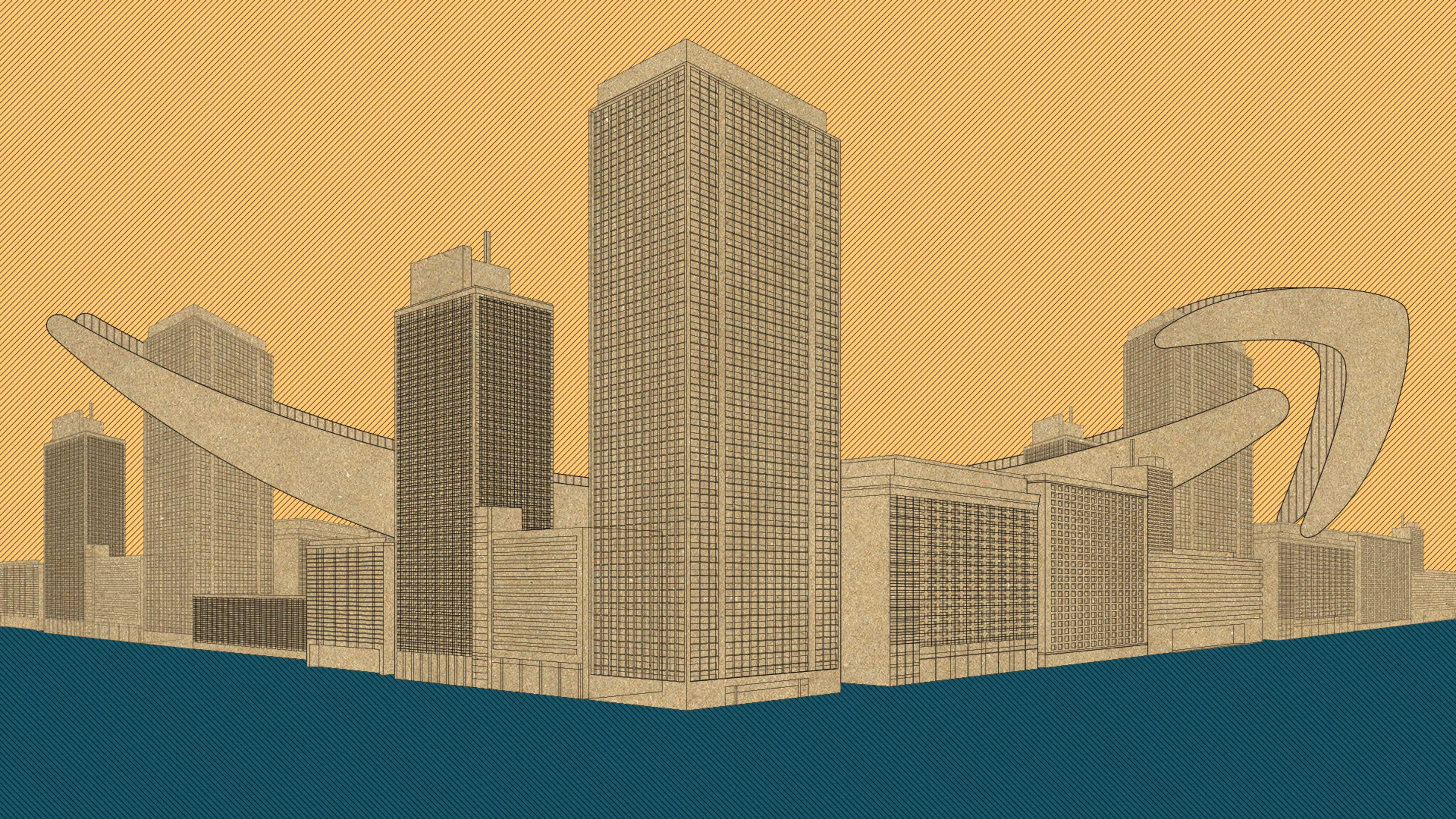Amazon is close to announcing a deal to split its new headquarters into two cities–reportedly, Long Island City in Queens and Crystal City in the D.C. suburb of Arlington, Virginia. Splitting the headquarters across two locations may help avoid some of the problems inherent in expecting one city to suddenly absorb 50,000 Amazon employees. But one expert argues–controversially–that the simplest solution is the company just building a new city from scratch instead.
Bert Sperling, founder of a website that rates cities for people who are relocating, started to consider the idea of a true company town for Amazon soon after the company released its request for proposal (RFP) for its new headquarters, which asked for a metropolitan area with more than 1 million people, the potential to attract and retain tech talent, and a high quality of life.
“What they were looking for was something that didn’t exist, which was that the city was successful and large and affordable,” he says. “When I say successful, I mean having a really good economy and lots of tech workers. The cities that fit those criteria don’t have a short commute, they don’t have affordable housing, and any successful city is being strained as far as its infrastructure.”
Adding another 50,000 workers–and tens of thousands of other people to support them or who are moving with them as family members–would just add to challenges cities are already experiencing. “It makes the commute that much worse,” he says. “You would make the unaffordability that much worse and be competing for more jobs for the workers. What they’re looking for would essentially bring any successful city to its knees.”
Even adding 25,000 new employees would strain a city, he says. Instead of Arlington, Virginia, Sperling suggests that Amazon should consider building its own community in Oatlands, Virginia, which is currently rural and undeveloped, but still relatively close to D.C.
By starting with a blank slate, the company could design a community that optimizes work-life balance, with offices near homes and recreation. Amazon could test smart homes like those from Plant Prefab, a home-building startup it invested in recently, and offer cheap or subsidized housing for workers. It could test drone delivery and its automated Amazon Go stores. Streets could be designed to support self-driving cars and electric scooters.
It’s a vision not unlike Facebook’s plans to build a new campus in Menlo Park, California, with 1,500 homes and a walkable “downtown” area including a new grocery store, pharmacy, and other retail stores. Facebook plans to eventually have 35,000 employees in Menlo Park, more than the town’s current population. But that project–like older company towns, and Sperling’s Amazon proposal–has problems.
If it’s located in an area that’s undeveloped, it could avoid displacing current residents (Facebook’s development will displace a largely Hispanic community). But building a new city around a single employer risks creating a community that will collapse if the employer ever pulls out. And some tech workers are unlikely to want to live in a sanitized neighborhood with no history or restaurants and stores that have opened organically rather than by design, though Sperling argues that the lack of a commute and a lower cost of living could tempt employees.
“These large companies are really getting constrained where people where people are commuting two hours and living five to a house,” he says. “I think everybody would be happier if they could create their own vision of a place to live and work.” A location like Oatlands, Virginia, is also close enough to D.C. that people could go there for entertainment. Amazon could invest in helping others move to the community. “They have deep enough pockets that they could sustain a diversity of population with schoolteachers, workers for retail and restaurants, etc. For not a lot of money, they could have really almost–I don’t want to get all warm and fuzzy–but more of a utopian vision of what a community should be like instead of a lot of rich and entitled tech workers.”
Of course, most past attempts at utopian communities have failed (as have most company towns, though a few, like Hershey, Pennsylvania, are still relatively economically healthy). And putting corporations in charge of city planning, instead of democratically elected officials, is a risky proposition.
For tech companies, it’s a broader issue. Many projects may not be as blatantly city building as Facebook’s, and Amazon is probably unlikely to take up Sperling’s suggestion to build a city from the ground up. But the company will still have an outsized influence on the cities where it eventually builds its new offices. Tech companies can use their expertise to look for urban solutions, as in Google’s research on how Silicon Valley could build a network of bike lanes to change transportation or its tool to help cities quickly calculate their carbon footprints.
But it’s worth questioning how far they should go, and cities are increasingly pushing back, even on smaller developments. Berlin recently rejected Google’s hopes of building a new campus. In Melbourne, people are protesting the idea of Apple taking over part of a town square. In Stockholm, the government recently blocked Apple’s plans to build a “town square,” or Apple store, in the city’s Kungsträdgården park. “You can’t privatize a park,” one Swedish activist told the Guardian. And maybe you shouldn’t privatize a city.
Recognize your brand’s excellence by applying to this year’s Brands That Matter Awards before the early-rate deadline, May 3.
